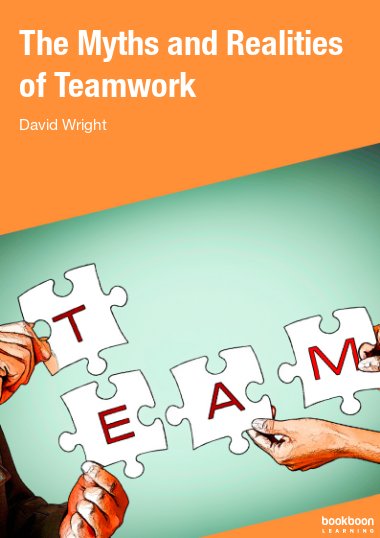In this book, the author, David Wright, sets out to share 30 years of his team building experience in organisations both large and small. The book focuses on the key milestones that mark a team’s journey to high performance, without being naïve to the challenges and the pitfalls; hence the title The Myths and Realities of Teamwork. The most common myth is that there is no ‘I’ in team; however, there is a ‘me’. The reality is that the reader can never ignore an individual’s needs, even within a strong team environment.
The myths and realities of teamwork will be told through a series of milestones (chapters) on a journey to high performance using 32 case studies, 37 illustrations and one joke, but it is a good one.
The milestones highlighted within each chapter, will aid the reader to check the team’s progress. The initial part of the team journey will focus on basic steps in building the team and this may feel mechanistic; however, as the book unfolds, you will experience more challenging skills and processes that will enable you and your team to achieve high performance.
The myths and realities are visited throughout the book to assist the reader to be realistic in approach.
The book also aims to help mature teams recapture that early enthusiasm and respect you may have witnessed when the team was new. Building a really effective team is akin to taking a journey and members of the team must experience the journey together. I will refer to the team journey a lot throughout this book. In order for the team to have a fruitful journey, the following milestones must be reached:
- Burying the myths and raising the realities
- Understanding organisation culture and the team’s potential starting point
- Establishing team goals and vision
- Establishing ground rules for effectiveness
- Meeting skills and positive contributions
- Recognising the team processes including the journey from ‘Ritual Sniff’ to ‘Maturity’
- Developing team skills that will aid success
- Defining the team roles beyond pure functional roles and predicting future success or failure
- Understanding empowerment and its place, especially in self-directed work teams
- Having the level of openness and trust to share feelings and take responsibility for change
- Embracing high performance, celebration and fun
- Understanding the practice of leadership for all


